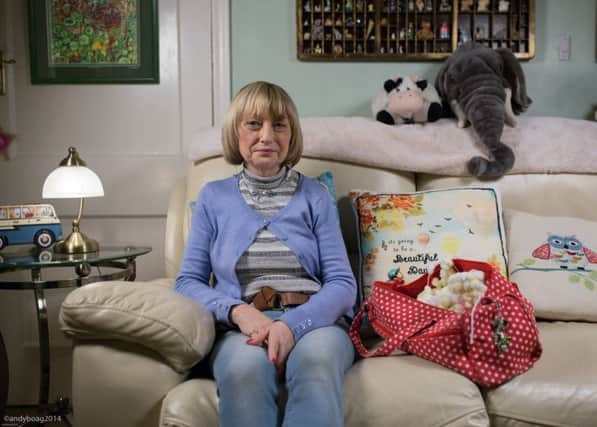Stroke survivor urges people to Act F.A.S.T. and save lives


The awareness-raising campaign urges the public to call 999 if they notice even one of the signs of a stroke in themselves, or in others:
• Face – has their face fallen on one side? Can they smile?
• Arms – can they raise both their arms and keep them there?
• Speech – is speech slurred?
• Time – time to call 999.
Advertisement
Hide AdAdvertisement
Hide AdIn 2016/17, 4,241 people on the GP register in Hastings and Rother were recorded as having had a stroke, according to the Hastings and Rother Clinical Commissioning Group.
Carolyn McCartney, 58, from Hastings, said that quick action saved her life.
She said: “One Sunday afternoon, I began to feel a severe pain in my head. I went downstairs to go to the toilet and my right leg gave away. I suspected straight away that something was wrong and that I could be having a stroke.
“I asked my brother, who was in the house at the time, to call 999 for me, and I was rushed to a specialist stroke unit. As soon as I lost all feeling down the right side of my body, I just knew. I can’t even explain the overwhelming sense of certainty I had at the time. I’d never thought about stroke before, but somewhere in my mind was the knowledge that this was a stroke.
Advertisement
Hide AdAdvertisement
Hide Ad“I spent eight days in hospital and thankfully I have made a really good recovery. The Stroke Association visited me and helped me get to grips with what had happened. Even though I didn’t have all the F.A.S.T. signs, just one was enough to make me realise it was an emergency and I needed to call 999.”
Stroke is the third most common cause of premature death, and a leading cause of disability in the UK. There are around 32,000 stroke-related deaths in England each year.
Deaths related to stroke have declined by 49 per cent in the past 15 years. This has been accredited to a combination of better prevention, earlier treatment and more advanced treatment. Getting an NHS Health Check, for those aged 40-74 years, can identify early if you are at risk of a stroke.
While the majority (59%) of strokes occur in the older generation, PHE’s figures also found that more than a third (38 per cent) of first time strokes happen in middle aged adults, between the ages of 40 and 69. The average age for males having a stroke fell from 71 to 68 years and for females, 75 to 73 years between 2007 and 2016.
Advertisement
Hide AdAdvertisement
Hide AdAwareness is crucial, so the campaign reaches out to people of all ages to highlight the risk of stroke and reiterates the signs and how vital it is people call 999. Around 1.9 million nerve cells in the brain are lost every minute that a stroke is left untreated.
Steve Brine MP, Parliamentary Under Secretary of State for Public Health and Primary Care, said: “Strokes still claim thousands of lives each year, so the message of this Act F.A.S.T. campaign remains as relevant as ever. The faster you act, the greater the chance of a good recovery. That’s why I’m urging everybody, and we must remember stroke can hit at any age, to familiarise themselves with the signs of a stroke and be ready to act fast.”